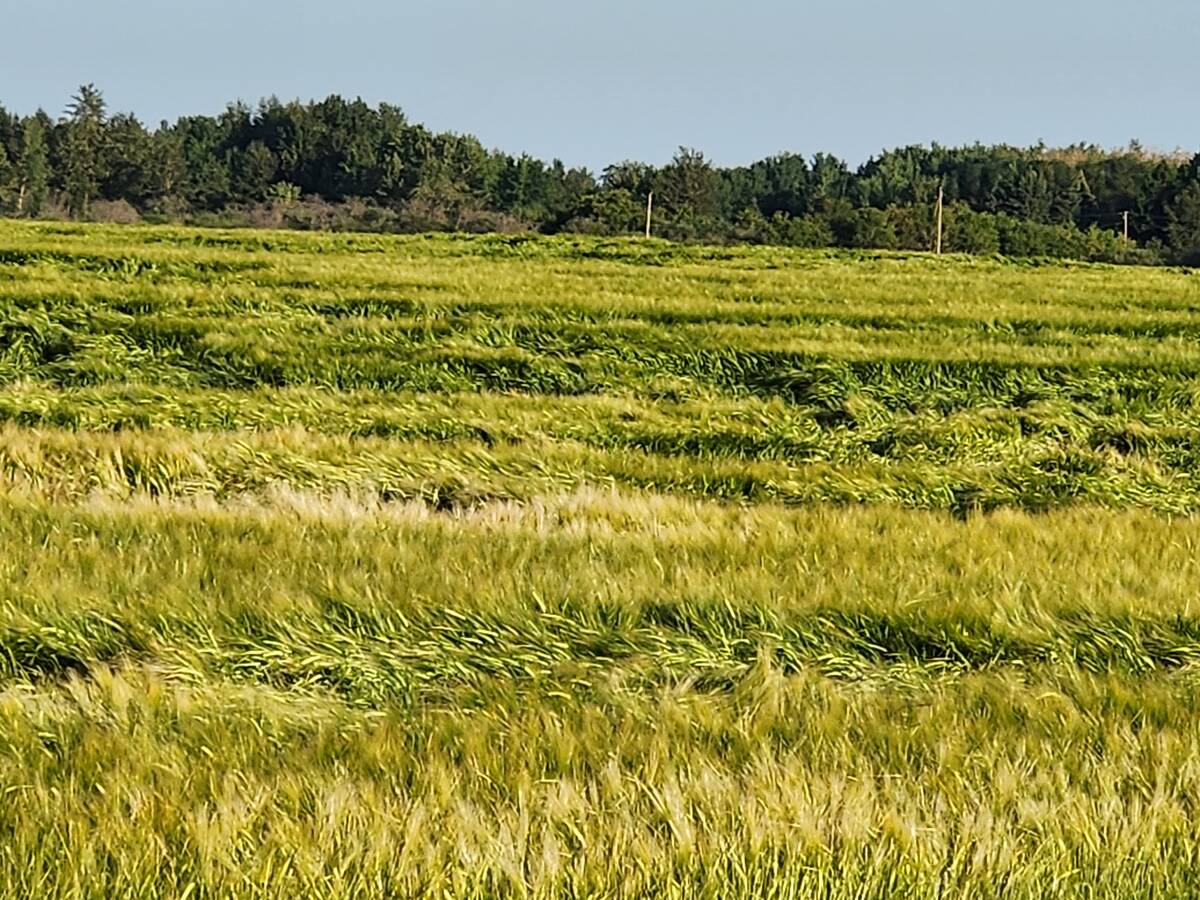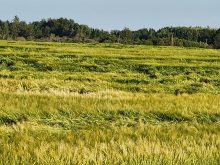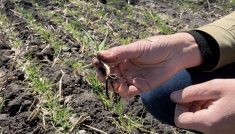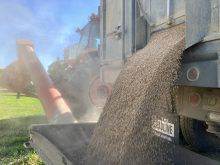The debate is heating up on whether a system that has made Prairie wheat synonymous with top quality is in need of an overhaul.
Grain variety registration was a hot topic at the recent Canada Grains Council annual meeting, and while the current system has many defenders, others are calling for significant changes.
Having a famous brand is clearly an advantage in many markets, said Terry James, vice-president of export marketing at Richardson International.
During a recent sales trip to Italy, millers frequently told James they wanted to buy “Canada Manitoba wheat” — their name for Canada Western Red Spring, and a holdover from when “Manitoba Northern” was an official grade name.
Read Also

Cereal lodging isn’t just a nitrogen problem
Lack of copper in the soil can also lead wheat and other cereal crops to lodge during wet seasons on the Canadian Prairies.
“Obviously it’s a very strong brand in that particular market,” James said. “My point is, of course, long-standing repeatable business is done in a very vital market based on a brand, an expectation and a name they could trust.
“Varietal control has been a key part of maintaining the brand.”
However, North American millers buy Canadian wheat based on its class and grade, not a specific variety, said Gordon Harrison, president of the Canadian Millers Association.
Still, it’s important to maintain the integrity of the system to ensure millers get the wheat they want for very specific end uses, he said.
The past president of the Western Canadian Wheat Growers Association argued that while “wholesale changes” aren’t required, there is a need to “reduce the rigidities” in the existing system.
“If I want to grow a spring milling wheat that does not meet CWRS quality standards I should be free to do so providing it meets the minimum standards for disease and insect resistance,” said Cherilyn Nagel.
That would be a major change because the system is designed to ensure new wheat varieties meet the criteria for the class they are intended for, said Dave Hatcher, a research scientist with Canadian Grain Commission.
New milling wheat varieties are reviewed by three expert committees — one considers agronomic factors such as lodging and maturity, another looks at disease susceptibility, and a third at milling and baking characteristics. After the reviews, the members of all three committees (each has at least 25) meet and vote by secret ballot.
While there is an ongoing need to continually monitor and improve the system, “we really don’t want to… throw the baby out with the bathwater,” said well-known oat and barley breeder Brian Rossnagel.
But while changes have recently been implemented to make the system more flexible, a Syngenta official argued more needs to be done.
“Today’s variety registration system has limited flexibility to meet market demands, is painfully slow and should be reformed to meet today’s high pace and evermore consumer-oriented markets,” said Darcy Pawlik, Syngenta’s North American industry relations lead.
“Now I’m not advocating for the need to abolish all the different quality controls in place… I’m sure we can… speed up variety introductions while ensuring wheat growers are getting the tools that they need.”
Such changes would encourage his company and others to invest in new wheats for Canada, said Pawlik, adding there also needs to be changes in regulations that make it easier for breeders to get a return on their investment.
The need for changes has grown since the federal government decided to end the Canadian Wheat Board’s single desk, he said.
“The government has decided to change the game for wheat and barley production so now it’s up to us to take advantage of this,” Pawlik said.
But James argued for a go-slow approach.
“There is room for improvement, we can make changes but let’s not be too hasty,” he said. “Let’s walk before we run and let’s move forward on a path that’s working together.”















